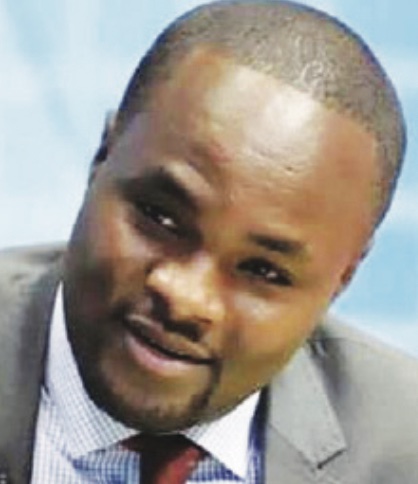
Screenshot

Last week, we took a brief detour into the struggles within the Uganda Law Society (ULS) – aimed at reforming both the law, and the legal profession.
I am glad that, at the Extraordinary General Meeting (EGM) held on Wednesday, 17th September 2025, the ULS members present asserted their natural right to self- determination (alongside the freedoms of expression and association) – a notion which certain sections of the legal fraternity, in concert with some sections of the Ugandan Judiciary, seem to be bent on undermining.
It was also a week in which the crisis (a word which is now frequently used in discourse but whose applicability in many contexts is undiminished) of constitutional law and governance in Uganda was foregrounded – both at the Inaugural Sam Njuba Memorial Lecture, organized by the Uganda Law Society (on Thursday, 18th September 2025) and at the 8th Benedicto Kiwanuka Memorial convened by the Ugandan Judiciary (on Friday, 19th September 2025).
When a Minister of Internal Affairs despairs as to the state of internal affairs in the country (as Major General Kahinda Otafiire did at the Sam Njuba Lecture), there is real cause for concern.
Similarly, when a Justice of the Constitutional Court of Uganda remarks on the ‘emasculation’ of the Constitution (as Justice Frederick Egonda-Ntende did, also at the Sam Njuba Lecture), it is foolhardy to proceed as if it were still business as usual. As always, the now proverbial question being asked is: ‘How did we get here’?
Part of the answers were provided in Justice Egonda-Ntende’s address at the Sam Njuba Lecturer, as they were indeed, in Senior Counsel Francis Gimara’s keynote address at the Benedicto Kiwanuka Lecture.
In his remarks, Justice Egonda-Ntende observed as follows: ‘The 1995 Constitution has been amended several times with the result that the balance and distribution of power, the checks and balances, worked into the system, have, in reality, been emasculated.
The staggering size of the legislature and consequent cost must be evaluated in terms of need, cost, and benefit, given the population and size of this country. The balkanisation of the country, into over 130 districts from 33 districts 45 years ago, ought to be interrogated and determination if the cost and benefit justify that line of travel.
The staggering cost of political administration of the country vis a vis an ever-declining value and quality of essential public services must be examined. Usurpation of jurisdiction to try civilians, often political elements opposed to the holders of the reigns of power, by military courts.
There may be a need to look at how judges are appointed to provide a more robust detachment from political elements’ [at page 3 of his speech]. Similarly, Senior Counsel Gimara pointed out the ‘growing concern … regarding dangerous precedents’, which ‘bad precedents foster and reinforce a climate of illegality’, a situation aggravated by ‘[t]he risk of subsequent harmful precedents emerging, which then reinforce themselves…’ [at page 20 of the address].
Today, we return to our examination of a particularly bad precedent recently offered up by the Constitutional Court of Uganda in its decision in Innocent Ngobi Ndiko and Others v Attorney General and Another (Constitutional Petition No.23 of 2020). We do this in the hope of preventing (or at least mitigating) the risk, identified by Senior Counsel Gimara, of such a harmful precedent creating the foundation for ‘subsequent harmful precedents…which then reinforce themselves’.
In previous editions, this column identified three faces of the juridical ghost conjured by the majority of the Constitutional Court in Innocent Ngobi Ndiko: i) the subordination of constitutional principle to majoritarian considerations; ii) an unprincipled failure, or unwillingness, to refer to the Court’s own relevant previous jurisprudence; and iii) the imposition of extra-constitutional fetters on the Court’s interpretative role, in that case the invocation of a ‘presumption of constitutionality’.
Today we examine a fourth face of the ‘Muzimu’, one somewhat related to the third: the treatment of constitutional litigation like ordinary civil litigation. Two hundred and six years ago, in the 1819 United States Supreme Court case of McCulloch v. Maryland, Chief Justice John Marshall sounded a warning to the jurists of his time and those of ages to come, noting: ‘[W]e must never forget forget that it is a constitution we are expounding’.
Since that time, it is counsel which has been heeded by the courts in several jurisdictions, with judges observing that the Constitution should not be ‘construed in any narrow and pedantic sense’ (Lord Wright in the 1936 Australian case of James v Commonwealth of Australia) or ‘in a narrow and legalistic way’ (Privy Council in the 1991 Trinidad and Tobago case of Attorney General v Whiteman); and that courts should avoid ‘the austerity of tabulated legalism’ (Lord Wilberforce in the 1979 English case of Minister of Home Affairs v Fisher).
Similarly, in the 1984 Canadian Supreme Court case of Hunter v Southam Inc, Judge Dickson observed that: ‘The task of expounding a Constitution is crucially different from that of construing a statute’; and in the 1981 Nigerian Supreme Court case of Rafiu Rabiu v The State Sire Udo Udoma (who had served as Chief Justice of Uganda, and presumably learnt some lessons from his infamous decision in Ex Parte Matovu) noted: ‘[the Constitution is] the Supreme Law of the land …a written organic instrument meant to serve not only the present generation, but also several generations yet unborn ….and therefore more technical rules of interpretation of statutes are to some extent inadmissible in a way so as to defeat the principles of government enshrined in the Constitution’.
On other occasions, Judges have warned that any other approach would be to ‘stultify the living Constitution in its growth’ (Amissah, P in the 1992 Botswana case of Attorney General v Unity Dow); to make ‘the words of the Constitution become little more than good advice’ (Chief Justice Warren in the 1958 US Supreme Court case of Trop v Dulles); and to render the Constitution ‘a stale and sterile document’ (Tanzanian Court of Appeal in the 2001 case of Ndyanabo v Attorney General, citing with approval remarks made by the Chief Justice Emeritus Ayoola, of The Gambia, at a 1998 conference).
Indeed, similarly, the Courts have warned of the imperative ‘not to read the provisions of the constitution like a last will and testament lest it become one’’ (Judge Dickson in the Hunter v Southam Inc case above, citing Professor Paul Freund).
This, then, is the reverence with which constitutional interpretation and, by extension, constitutional litigation should be treated. Indeed, in terms of Article 137 (7) of the Constitution: upon a petition being made or a question being referred under that article, the Court of Appeal must proceed to hear and determine the petition as soon as possible and may, for that purpose, suspend any other matter pending before it.

Evidently, the framers of the Constitution gave due import and weight to petitions and references brought or made with reference to the meaning of the supreme law of the land. The reality, however, is often different.
Constitutional sessions are few and far between, and when they do happen the proceedings are usually perfunctory and harried. Indeed, more often than not, proceedings are by way of written submissions which are filed electronically, with lawyers appearing in court to ‘adopt their written submissions’.
Evidently, the Court of Appeal is significantly overwhelmed and has devised ‘creative’ means by which to try to contend with the now perennial challenge of ‘court backlog’ (defined, in the Ugandan context, as cases which remain unresolved for longer than two years).
This crisis in the Constitutional Court – for indeed, there is no more suitable word for it – is partly historical. At the time the 1995 Constitution was promulgated, constitutional litigation was something of a bit of a novelty, with a handful of cases filed each year. It was, therefore, understandable for the Court of Appeal to be set up with concurrent constitutional jurisdiction, on the understanding that the additional workload thereby created would not be significantly prohibitive.
Since that time, of course, the landscape has shifted dramatically, with several Ugandans (individuals and organizations) realizing – and trying to utilize – this special jurisdiction as an avenue for the realization of the constitutional promise of a free and democratic society.
The result has been very high numbers of constitutional petitions filed every year, with many gathering dust (literal and proverbial) for several years between their presentation and determination. In these circumstances, the Court of Appeal’s approach – aimed at disposing of as many matters (constitutional and otherwise) as possible – can be at least understood, if not justified.
The challenge, of course, is that this approach to constitutional petitions and references is not without its consequences (psychological and substantive). If the Court of Appeal is forced – by reason of logistical expedience – to treat constitutional petitions like ordinary ones, there is a high likelihood that the resulting approach to constitutional interpretation might not significantly differ from ordinary statutory interpretation.
Put differently, if the Court of Appeal of Uganda, which is also the Constitutional Court of Uganda, continues to treat constitutional petitions like ordinary matters, there is a high likelihood that as the interpretation that emerges therefrom will be ordinary at best, and dangerous or even harmful to the ideal of a free and democratic society, at worst.
A critical factor, in this regard – often underlooked – in Article 137 is the persistent use of the word ‘question’, with respect to the constitutional jurisdiction of the Court of Appeal.
Essentially, a petition or reference to the Constitutional Court is not an invitation to the court to determine the private rights of any parties. Rather, it is an invitation to the court to address its mind to a matter of public import, implicating the supreme law of the land, binding upon all persons and authorities in Uganda.
Indeed, it is for this reason that the power of a constitutional reference is additionally provided, through which a lower court is required to submit a constitutional question, arising in ordinary proceedings, for determination by the Court of Appeal.
Essentially, therefor, what is placed before the Constitutional Court is not a dispute, for resolution through the ordinary process of adversarial litigation, but rather a question to be determined thoughtfully by that court – in concert with the petitioners, respondents, any intervening third parties, friends of the court (invited by the court or admitted upon application) and any other legitimate stakeholders whose views might be helpful in reaching the correct answer to that question.
A similarly important made was consistently made by the late Retired Justice Professor George Kanyeihamba with respect to the determination of petitions challenging the outcome of presidential elections.
He observed that the duty of the Supreme Court, in those instances, was not necessarily to hear and determine a dispute (on an adversarial basis) between two litigants, but rather to ‘inquire into’ the petition as envisaged under Article 104 (3) and (5) of the 1995 Constitution.
The practical import of this was that the Supreme Court was not, in such proceedings, limited to the material filed by the respective parties, but could on its own motion, call for any evidence or other material (in the hands of the State or any other party) it considered germane to that enquiry.
Justice Kanyeihamba, in my view, was correct. Indeed, one area of constitutional amendment (when sanity returns to our governance) might be to amend Article 104, to remove any doubt in this regard.
In particular, while Article 104 (1) of the Uganda Constitution restricts the right of challenging a presidential election to ‘any aggrieved candidate’, Article 140 (1) of the 2010 Constitution of Kenya grants that right to ‘a person’.
The Kenyan provision makes it clear that the importance of free and fair elections is not a value or good which is personal-to-holder, but one which is of relevance to all persons (whether candidates or not, or indeed, whether registered voters or not).
Nonetheless, even with the current language of Article 104 of the Ugandan Constitution, the reference to an ‘inquiry’ establishes a higher standard, and a freer hand, for the Supreme Court with regard to its approach in such matters.
The writer is Senior Lecturer and Director of the Human Rights and Peace Centre (HURIPEC) at the School of Law, Makerere University, where he teaches Constitutional Law and International Law.



